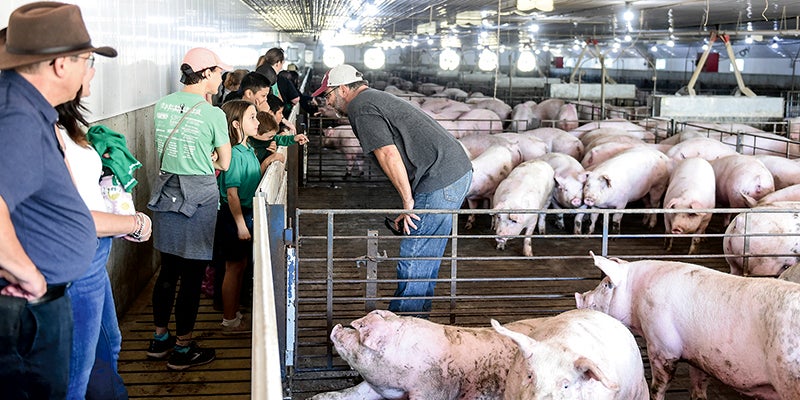Gustavus conference focuses on future of soil in sustaining life
Published 8:04 am Wednesday, October 3, 2018

- It's all about soil this year at Gustavus Adolphus College's Nobel Conference. The agenda will look at soil from several different angles, including ecology, geology, soil science and history. Elizabeth Dunbar | MPR News
By Elizabeth Dunbar
MPR News/90.1 FM
It was a philosopher — not a scientist — who came up with the idea for this year’s Gustavus Adolphus College Nobel Conference theme: Soil.
“It’s kind of a classic example of something that happens at a small school like this, where we all talk and we all like to think about each other’s topics and each other’s questions,” said Laura Triplett, an associate professor of geology and environmental studies at Gustavus Adolphus, who is one of the conference’s co-chairs.
Triplett said Lisa Heldke, who directs the Nobel Conference and whose expertise in philosophy helped shape it, was interested in the role soil plays in feeding us now — and into the future. Triplett said organizers ended up with an agenda that looks at soil from many different angles: ecology, geology, soil science and history.
That’s part of what this conference is — to try to take a holistic view of some of these big questions in society,” she said.
Why is soil so important? For one, Triplett said, it plays a key role in ensuring we can grow food for a growing global population. Minnesota is among the places that have lost topsoil to erosion over the years, she said.
“Let’s see if we can maybe take some actions now before it gets to a crisis point, before we really start to see a decrease in crop yields,” she said.
There’s also a growing global movement focused on using soil to address climate change by sequestering carbon in the ground through certain agricultural practices.
Several of the conference’s speakers, including MacArthur fellow and University of Washington professor David Montgomery, who wrote a book on the topic, will talk about how soil might help reduce global greenhouse gas emissions while also helping farmers.
While some people give funny looks when she tells them the Nobel Conference this year is all about soil, Triplett said interest has been high. It’s one of the best-selling Nobel conferences to date, with more than 3,400 people signed up to attend. Last year more than 8,000 people streamed the sessions online, and Triplett said she expects people will tune in from all over the world.
“Soil is so integral to our economy and our health and our environment, and we have some big decisions to make in the future,” she said. “I’m hoping this conference plants some seeds in people’s minds, helps them go back to their lives and maybe think about things differently … whether it’s farmers on their fields or parents buying food in the store.”




